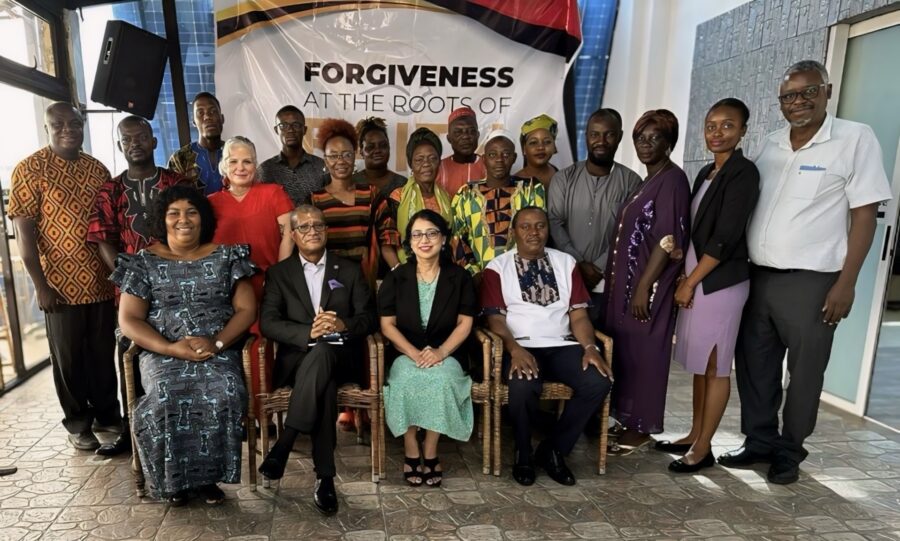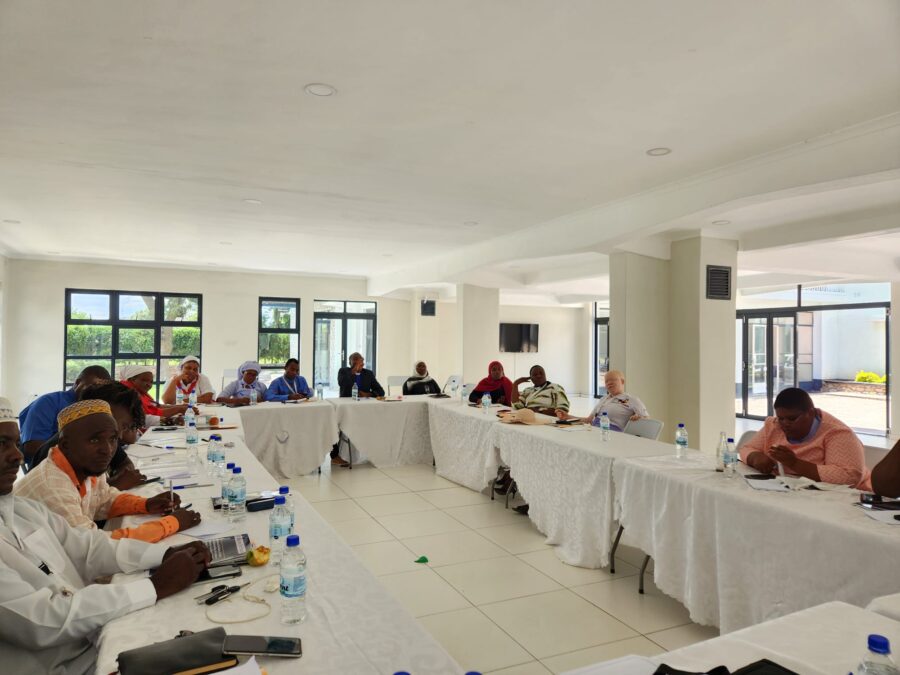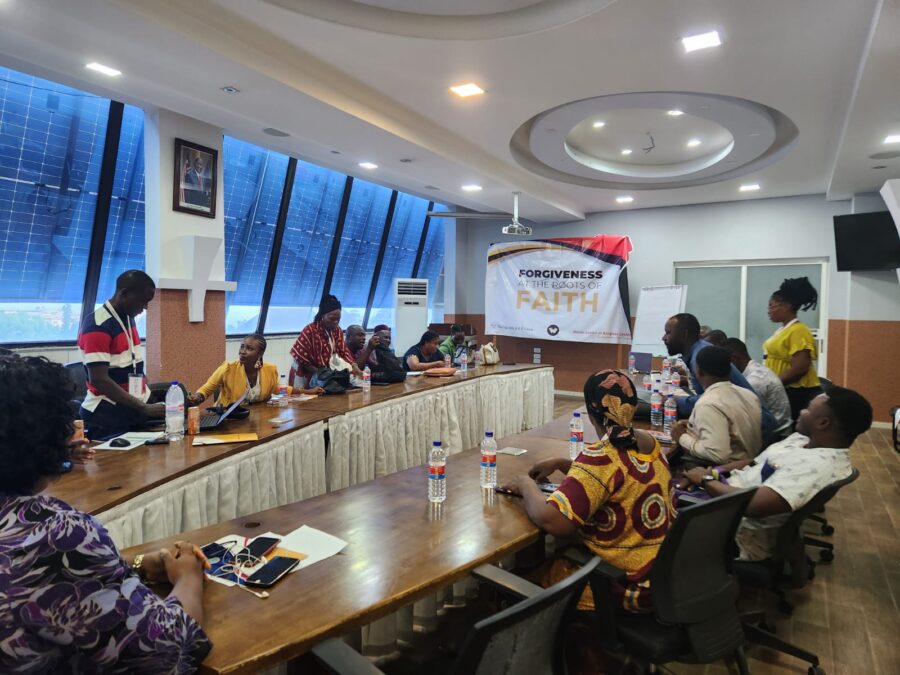“Forgiveness at the Roots of Faiths – How Understanding the Science of Forgiveness Can Better Heal and Restore Communities of Faith” Training of the Trainers
From 30 January 2024 – 9 February 2024, Religions for Peace’s Interreligious Councils of Zimbabwe and Liberia embarked on a transformative journey as Religions for Peace leaders convened for, the “Forgiveness at the Roots of Faiths – How Understanding the Science of Forgiveness Can Better Heal and Restore Communities of Faith” training. The culmination of this project, with support from the Templeton World Charity Foundation, in collaboration with the African Council of Religious Leaders-Religions for Peace, has been an ongoing process with the development of a new, re-adapted toolkit, offering mindful and psychological practices and benefits to forgiveness through a multi-religious lens.

Over the four-day training in each country, participants, including youth, in the Interreligious Council of Zimbabwe and the Interreligious Council of Liberia dove into the profound concept of forgiveness, exchanging personal anecdotes, experiences and stories. Participants explored significant realities of religious, gender, and cultural diversity across diverse faith traditions and navigated themes of lasting negative effects of communal violence and corruption, and the need for reconciliation, healing, and restorative processes–all underpinned by reflections on the psychological dimensions of forgiveness.

In Zimbabwe, the country has been plagued by a lagging economy and governmental fluctuation, resulting in continuous unrest and a fragile society. That was very reflective in the participants’ need to delve more deeply into forgiveness practices that offer a different way of being and a different way to address the myriad of issues the country and its people are facing. With over 70% unemployment and an all-time high level of food insecurity, Religions for Peace leaders left the training with a new understanding of how they can help their communities and offer more avenues to peacebuilding efforts.

In Liberia, the country is scarred by a violent past, years of civil war and political turmoil. Participants grappled with the complexities of forgiveness, intertwining deep theological reflections with personal narratives of resilience. At the time of the training, Liberia stood on the cusp of a new era with a new government that had only been in place for two weeks. Discussions shed light on the psychological benefits of forgiveness in post-conflict societies, focusing on spiritually grounded forgiveness practices. Religions for Peace leaders celebrated the training’s culmination with a renewed sense of purpose, affirming their commitment to ongoing multi-religious collaboration and peacebuilding efforts across the country.
As the training culminated in both Harare, Zimbabwe and Monrovia, Liberia, participants departed with a renewed understanding and a shared commitment to fostering peace and forgiveness within their communities, laying the groundwork for future collaboration, restorative and reconciliatory efforts.